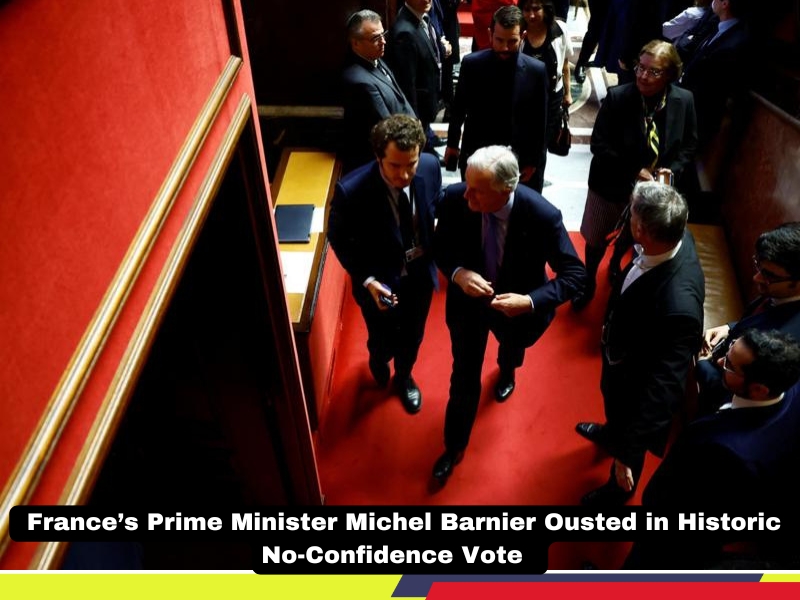In a dramatic turn of events, Michel Barnier has become the first French Prime Minister to be ousted in a no-confidence vote since 1962. The political shockwave comes just three months after Barnier was appointed by President Emmanuel Macron, marking a significant moment in the Fifth Republic’s history.
The vote followed a rare alliance between left-wing and far-right parties, who united to bring down Barnier’s government. At the heart of the political crisis was Barnier’s controversial use of special constitutional powers to pass the national budget without parliamentary approval. His decision to bypass a vote provoked widespread outrage across the political spectrum, ultimately sealing his fate.
Marine Le Pen, leader of the far-right National Rally, was scathing in her criticism of Barnier’s fiscal plan, describing the budget as “toxic” for France. Meanwhile, Jean-Luc Mélenchon, head of the far-left France Insoumise party, called the prime minister’s downfall “inevitable,” citing growing dissatisfaction with the government’s handling of economic and social issues.
Barnier’s short-lived tenure highlights the challenges faced by President Macron’s administration in navigating a fragmented and polarized political landscape. Macron had appointed Barnier in a bid to stabilize his government after significant parliamentary losses earlier this year. However, Barnier’s failure to build consensus proved to be his undoing.
President Macron, who retains the power to appoint a new prime minister, is expected to address the nation on Thursday evening. His speech will likely outline his next steps in response to the crisis, as well as his plans to restore confidence in his administration.
This episode underscores the precarious balance of power in France’s National Assembly, where Macron’s centrist Renaissance Party lacks an outright majority. The alliance between traditionally opposed political factions in this no-confidence vote also signals a growing willingness among opposition parties to set aside ideological differences to challenge Macron’s leadership.
For now, France faces a period of political uncertainty as the nation awaits President Macron’s next move. The situation serves as a reminder of the complexities and vulnerabilities of governance in a divided parliament, where consensus is increasingly hard to achieve.




